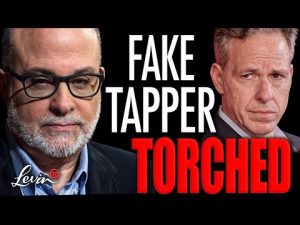A cloud of uncertainty hovers over the members of the January 6th committee as recent whispers suggest they are seeking preemptive pardons from President Biden before he leaves office. The chatter isn’t just idle speculation; it’s rooted in genuine fear among committee members, who seem deeply anxious about their actions and the evidence surrounding them. The committee, which was set up amid contentious political debates and heavy scrutiny, has tangled not only with the issues of legality but also with a sense of desperation that’s seemingly spilling out into their plea for pardons.
A former official, Pam Bondi, faced questioning about potential investigations into committee member Liz Cheney during her confirmation hearing. Senators probing the matter seemed to sense an evasive dance from Bondi, as no concrete answers were forthcoming. It’s almost as if the members of the committee are now playing a high-stakes game of political chess, where the pieces they’re maneuvering include accusations of wrongdoing rather than solid evidence of guilt. Some suspect their unusual request for a pardon is not out of sheer innocence, but rather an admission of potential misconduct that lurks beneath the surface.
Skepticism abounds regarding the legitimacy of the January 6th committee itself. Critics have pointed to its creation as a fundamentally flawed process, suggesting that the committee was established without proper bipartisan representation. The likes of Adam Kinzinger and Liz Cheney were handpicked, avoiding stronger Republican voices, which raises eyebrows about the committee’s intentions. Many argue that the motivations behind their actions were less about truth-seeking and more about building a narrative that fits a particular political agenda. And now, it appears that some of those members may be worried that their own actions could come back to haunt them.
One of the darkest clouds hanging over the committee is the alleged deletion of key evidence—an act that has serious legal ramifications. Under the Federal Records Act, federal agencies, including Congress, are mandated to preserve their records. This isn’t just bureaucratic red tape; this is about accountability. If evidence has been destroyed or deleted, it could signify a blatant disregard for the rules. Historical comparisons have been drawn to past cases where prosecutors faced severe penalties for similar or lesser offenses. Suddenly, the stakes for the committee members seem painfully high, and their actions resemble those of cornered animals scrambling for survival.
If a pardon is granted, it brings its own set of complications. Particularly, the recipient loses the right to remain silent, which may ensnare them in inquiry as they can no longer plead the fifth in the face of questioning. Imagine the chaos that would erupt if everyone involved in this saga was laid bare to Congress and special prosecutors, all under scrutiny for the evidence they were once so keen to obscure. In a political landscape already riddled with tension and division, the prospect of these implications sends shivers down many spines.
In the end, American politics has always been a game of strategy, and this unfolding drama of potential pardons feels like the latest episode in a long-running series filled with plot twists. Whether this ends with justice served or an elaborate escape plan remains to be seen, but one thing is clear: the participants will be navigating a treacherous path fraught with both political and legal hazards in the days to come. The quest for a pardon may just be the first move in a larger game, and the audience is left wondering what the next act will reveal.







